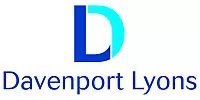In the world of e-commerce, keeping up with the competition is key, especially when it comes to buying keywords containing competitors' trade marks.
In a recent decision, the High Court has ruled that the unauthorised use of third-party trademarks as advertising keywords on Google's search engine (through Google AdWord services) may amount to trade mark infringement.
Background and judgment
Following a change of policy at Google in 2008, Marks & Spencer ("M&S") purchased a variety of keywords from Google containing the 'INTERFLORA' trade mark ("the Mark") in order to increase their visibility on Google's search engine. This meant when a user searched for the term 'interflora', the results would list the M&S flower delivery service as a sponsored link, which would be highlighted and listed above other genuine Interflora search results.
Interflora, the world's largest flower delivery network of independent florists, argued that the use of the Mark as a keyword constituted a trade mark infringement. Their reasoning for this was that the average consumer would click on the M&S advertisement and might assume that they were part of Interflora's network.
Before making its decision the High Court referred a number of questions to the European Court of Justice ("ECJ"). The ECJ confirmed that a trade mark owner may be able to prevent a third party from using their trade mark in advertising if such use might damage any of the "functions" of the trademark (considered below).
Functions of a trade mark
The High Court considered the effect that keyword advertising had on the investment and origin functions of the Mark. The investment function concerns a mark's ability to acquire or preserve a reputation capable of attracting consumers and retaining customer loyalty, and the origin function suggests to the average consumer that there is an economic link between the trade mark itself and the trade mark owner.
The Court found that the investment function of the Mark had not been damaged as there was no evidence that M&S had tarnished the image that the Mark conveyed to the public. However, when considering whether M&S had damaged the origin function of the Mark, the Court relied heavily on previous case law such as the 'Google France' case, and L'Oreal v Ebay. It was held that M&S's use of the Mark had adversely affected its origin function as the advertisement did not enable the average consumer to make the distinction between Interflora's and M&S's flower delivery services.
Judgment
It was held that M&S's use of the Mark had amounted to a trade mark infringement, as their actions did not enable an average consumer to ascertain whether or not the service referred to in the advertisement had originated from Interflora.
Implications for Google and other Internet Service Providers ("ISPs")
It is worth noting that Google's use of its AdWords tool may not in itself amount to trade mark infringement. The 'E-Commerce Directive' provides a 'hosting defence' for ISPs and states that an ISP will not be liable for hosting infringing or illegal content if it:
- does not have actual knowledge of illegal activity or information;
- does not play an active role which gives it knowledge or control over the data stored; and
- upon obtaining such knowledge, it acts expeditiously to remove or disable access to that information.
However, where an ISP has actual notice of the unlawful nature of data that it is hosting, and it fails to act expeditiously to remove or disable access to the data concerned, the search engine provider may then be liable in relation to that data. Consequently, advertisers and IPSs alike should remain vigilant regarding the use of potentially infringing content.
Practical consequences
A rights holder can object to the use of their trade mark as a key word where that use is likely to have an adverse effect on one or more of the functions of the trade mark, for example, the function to guarantee the origin of goods and services.
However, it is worth noting that Interflora's success in this case was arguably due to their unique position in the market, having a global network of independent florists operating under their own individual business names. This made it more difficult for consumers to distinguish whether or not M&S was part of the Interflora group. Therefore, where it is generally known to the average internet user that the competitor is a competitor of a brand or business (Coca Cola and Pepsi are well-known competitors for example), then a finding of trade mark infringement is unlikely.
Despite this, it is still advisable for businesses to limit their risk by ensuring that the origin of the goods and services in their advertisements is evident and obvious to internet users.
The content of this article is intended to provide a general guide to the subject matter. Specialist advice should be sought about your specific circumstances.

